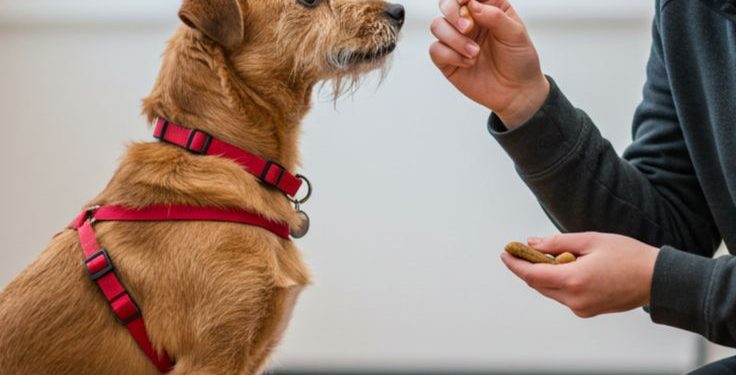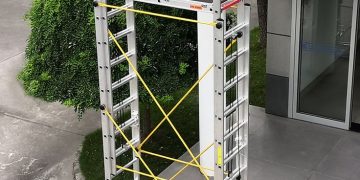For dog owners in Los Angeles, navigating the bustling streets, crowded parks, and numerous dog-friendly establishments can be a joy. However, for those with a reactive dog, these everyday scenarios can quickly become a source of stress and embarrassment. A reactive dog is one who overreacts to certain triggers – be it other dogs, people, bicycles, or even sounds – often manifesting as barking, lunging, growling, or pulling frantically on the leash. This behavior is typically rooted in fear, anxiety, or over-excitement, rather than aggression. Finding the right training service for a reactive dog is crucial for their well-being and your peace of mind.
Understanding Reactive Dog Behavior
Reactive behavior is a coping mechanism. When a dog feels overwhelmed, threatened, or overly excited by a trigger, they might resort to these outward displays to create distance or express their discomfort. It’s rarely about being “bad” or “dominant”; it’s often a dog trying to communicate or protect themselves in a situation they find challenging. Common triggers in Los Angeles include:
- Other Dogs: The most frequent trigger, especially in dog-dense areas.
- Strangers: People walking by, joggers, or children.
- Vehicles/Bicycles: Fast-moving objects can be startling.
- Specific Sounds: Sirens, skateboards, or loud noises.
Effective training for reactivity focuses on changing the dog’s emotional response to these triggers, rather than just suppressing the outward behavior.
Core Principles for Training Reactive Dogs
Successful training for reactive dogs is built upon several key principles dog training services Los Angeles:
- Positive Reinforcement: This is non-negotiable. Using treats, praise, and toys to reward calm behavior and positive responses to triggers. Force, punishment, or aversive tools (like shock collars, prong collars, or choke chains) can exacerbate fear and worsen reactivity.
- Counter-Conditioning and Desensitization: This involves gradually exposing the dog to triggers at a distance where they remain calm, while simultaneously associating the trigger with something positive (like high-value treats). Over time, the dog learns to associate the trigger with good things, changing their emotional response.
- Management: Initially, avoiding triggers or keeping a safe distance is vital to prevent rehearsing reactive behaviors and to keep the dog under their “threshold” (the point at which they react).
- Owner Education: A good trainer will spend significant time teaching you how to read your dog’s body language, identify triggers, manage situations, and implement training techniques consistently.
- Patience and Consistency: Training a reactive dog is a marathon, not a sprint. It requires dedication and understanding from the owner.
What to Look for in a Dog Trainer for Reactive Dogs in LA
Given the specialized nature of reactivity, selecting the right trainer is paramount. Here’s what to prioritize:
- Specialization in Reactivity: Look for trainers who explicitly state experience and expertise in working with reactive dogs. They should understand the nuances of fear-based behavior.
- Strictly Force-Free, Positive Reinforcement Methods: Confirm their methodology aligns with humane, science-backed practices. Ask about the tools they use and how they handle corrections (they shouldn’t be using physical punishment or intimidation).
- Individualized Training Plans: Reactive dogs rarely fit into a one-size-fits-all program. The trainer should conduct a thorough assessment and develop a tailored plan for your dog’s specific triggers and needs.
- Emphasis on Management and Prevention: A good trainer will first help you manage your dog’s environment to prevent reactive outbursts, creating a foundation for learning.
- Strong Focus on Owner Coaching: You are your dog’s primary trainer. The service should heavily involve and educate you, ensuring you have the skills to continue the training.
- Observation and Assessment: The trainer should observe your dog’s behavior in various contexts (even if initially at a distance) to understand the root cause of the reactivity.
- Small Class Sizes or Private Sessions: For reactive dogs, private sessions are often recommended initially to build foundational skills in a low-stress environment. Some trainers offer specialized “Reactive Dog” group classes that are highly controlled, with limited participants and ample space between dogs.
Top Service Formats for Reactive Dogs in Los Angeles
- Private In-Home Sessions: Often the most effective starting point. The trainer can observe your dog in their natural environment and work on specific triggers in a controlled setting.
- Specialized Reactive Dog Group Classes/Workshops: Once your dog has made progress in private sessions, these can be invaluable for practicing skills in a controlled group setting with other reactive dogs and experienced trainers.
- Day Training/Board & Train (with extreme caution): If considering these, ensure the facility and trainers are explicitly force-free and experienced with reactivity. Ask detailed questions about their methods, daily routine, and how they handle trigger exposure. A poor choice here can worsen reactivity.
Why Los Angeles Offers Excellent Options
Los Angeles, being a hub for pet care and innovation, has a high concentration of highly skilled, certified professional dog trainers who specialize in behavioral challenges like reactivity. Many are at the forefront of positive reinforcement techniques and are dedicated to helping dogs and their owners live more harmonious lives.
Conclusion
Living with a reactive dog can be challenging, but it doesn’t have to be a permanent struggle. By understanding your dog’s needs and diligently seeking out trainers in Los Angeles who specialize in reactivity, utilize force-free methods, and prioritize owner education, you can transform your dog’s emotional responses and enjoy all that LA has to offer with a calmer, happier companion. Patience, consistency, and the right professional guidance are your keys to success.









